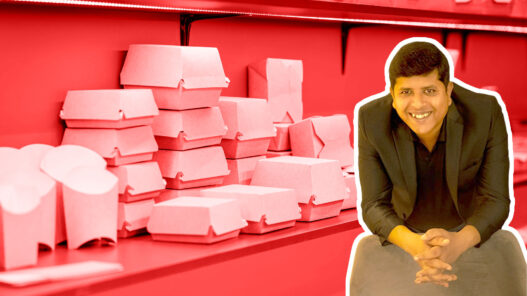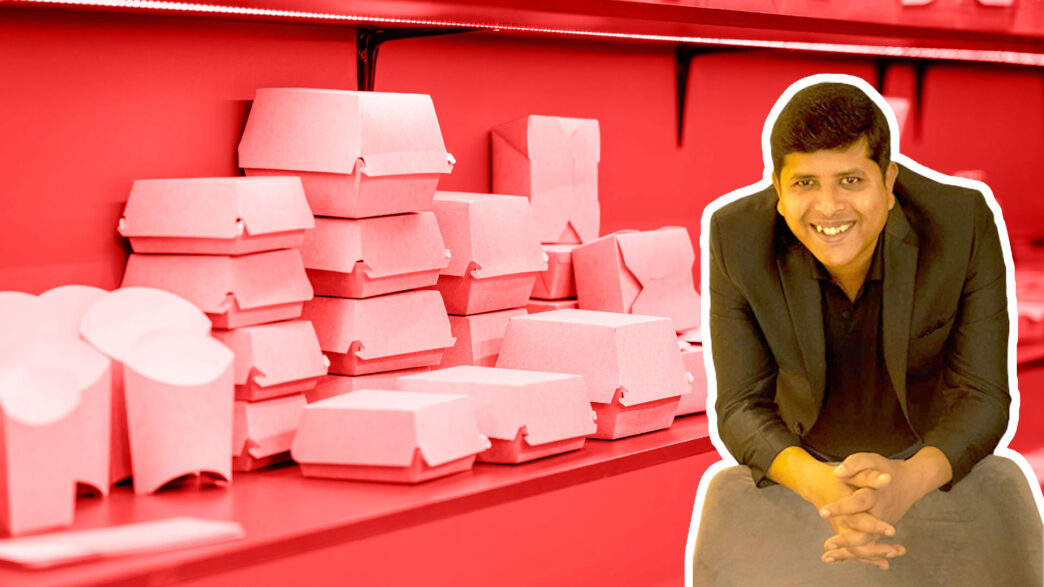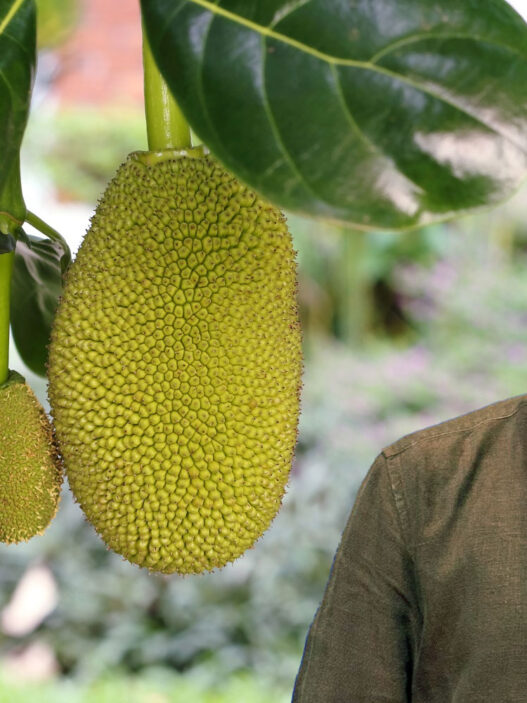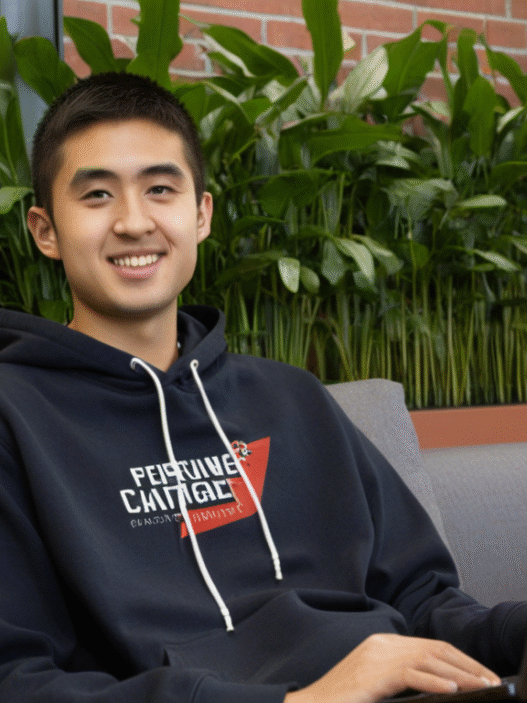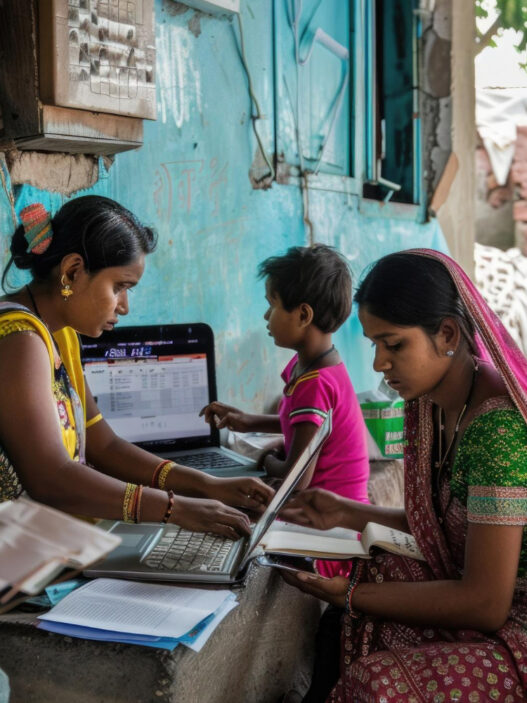In 2020, like thousands of others across India, Sagnik and Madhumita Mukherjee saw their fledgling business crumble under the weight of the pandemic. Their home-cooked meal delivery service, once a promising source of comfort food for office-goers in Hyderabad, folded almost overnight. Orders dried up. Cash ran out. And what was meant to be their shared entrepreneurial dream turned into a quiet, humbling pause.
But this isn’t a story about failure.
This is a story about a couple who got back up, dusted off the debris, and asked one simple question: What’s a problem we still care about solving?
Their answer: plastic.
A Fresh Start in a Polluted World
“Even during our meal delivery days, we hated packing food in plastic,” says Madhumita. “We tried paper boxes, but they’d leak. Compostables were expensive. Nothing felt right.”
That frustration didn’t fade after the business shut down. In fact, it became the seed of their next venture. Over the next several months, the Mukherjees dove deep into the world of sustainable packaging—interviewing manufacturers, testing bio-materials, and learning about supply chains that were anything but green.
In late 2021, armed with a shoestring budget and a sharper sense of purpose, they launched EcoRightPack, a green packaging startup focused on biodegradable, heat-resistant, and food-safe containers made from agricultural waste like bagasse (sugarcane pulp), wheat bran, and cornstarch polymers.
Fast forward to 2025, and they’ve now replaced over 7 million plastic containers from Indian streets, landfills, and oceans.
Their current annual revenue? ₹2.5 crore.

What Made It Work
EcoRightPack didn’t try to reinvent the wheel. It focused on three things most eco-packaging startups struggle with:
- Durability: “Our products don’t just look eco-friendly. They actually perform better than plastic in heat, moisture, and weight tests,” says Sagnik.
- Affordability: They worked with tier-2 suppliers, eliminating expensive middlemen. The result? Packaging that’s only 15–20% more expensive than plastic—not double or triple, as is often the case.
- Local Customization: From idli trays for Chennai canteens to biryani boxes in Kolkata, they designed SKUs that local food vendors actually need.
Today, their client base includes restaurant chains, delivery aggregators, school canteens, and even wedding caterers across five states.
The Bigger Picture: India’s Green Packaging Wave
EcoRightPack is not alone. A quiet revolution is underway across India as the country grapples with plastic bans, rising environmental awareness, and a massive food delivery boom. Let’s look at a few other players shaking things up in this space:
1. Ecoware (Delhi)
Founded in 2009, this early pioneer makes biodegradable cutlery and packaging from wheat bran and sugarcane. They’ve supplied the Indian Railways and even exported to Europe. Their big edge? Industrial-scale manufacturing and government contracts.
2. GoDoGreen (Bengaluru)
This startup built a direct-to-consumer model for compostable packaging kits—aimed at small F&B brands and home chefs. Think of them as the “AmazonBasics” of eco packaging.
3. GreenPod Labs (Chennai)
They take a different approach: instead of replacing plastic, they extend the shelf life of food with plant-based sachets. This reduces the need for packaging in the first place. It’s innovation by subtraction.
4. Pakka (Uttarakhand)
Formerly Yash Papers, Pakka is gunning to become India’s global packaging brand. They’ve invested in R&D for water-resistant, oil-proof, home-compostable solutions, and are expanding to LATAM and Africa. They’re the “Elephant in the (green) room.”
Why This Matters Now
India generates over 3.4 million tonnes of plastic waste annually. Nearly 60% of it comes from food packaging. In this landscape, green packaging isn’t a niche—it’s a necessity. But the challenge has always been about scale and price.
What startups like EcoRightPack are proving is that it is possible to be mission-driven and commercially viable. You don’t have to choose between saving the planet and staying in business.
Plus, with state-level mandates pushing for single-use plastic bans, and companies like Zomato, Swiggy, and BigBasket under pressure to clean up their supply chains, the demand curve is steep—and climbing.
What’s Next for the Mukherjees?
The couple recently moved operations into a new 6,000 sq. ft. facility outside Hyderabad. They’re hiring aggressively and looking to license their packaging tech to caterers and cloud kitchens in tier-2 cities.
They’re also developing a “Return & Reward” pilot program, where bulk buyers can return used containers for composting and earn discounts—think of it as a loyalty program for waste reduction.
Their long-term vision? “We want to be the Amul of green packaging,” says Sagnik. “Affordable, everywhere, and trusted.”
Final Thought
Startups often begin with a bold idea. But sometimes, the boldest thing you can do is start again—smarter, quieter, with lessons from failure in hand.
Sagnik and Madhumita didn’t just pivot. They realigned. They bet on a problem that wouldn’t go away. And instead of fighting plastic with outrage, they fought it with options.
That’s the kind of resilience India’s startup ecosystem needs more of—not just unicorns, but founders who keep showing up until they figure it out.
Have a startup story or know someone who’s quietly building something great? Write to us at helloespee@gmail.com.








